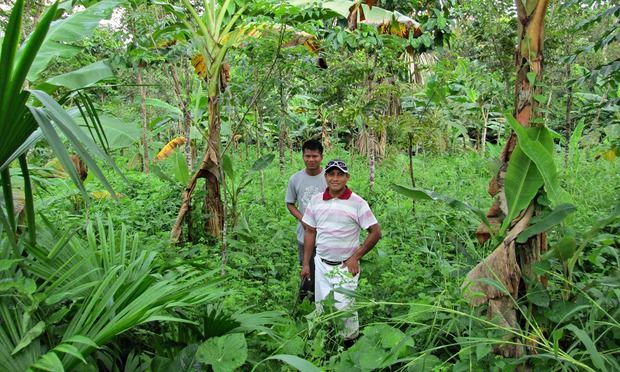Katie Forster writes for the Guardian about how the Planting Empowerment project is restoring deforested land for future generations.
“During dry season you see huge trucks loaded with enormous logs rolling out of the Darien jungle every day. It’s disheartening,” says Andrew Parrucci who, after graduating from Virginia Tech, spent several years in Panama as a volunteer with the US Peace Corps.
But it wasn’t only big logging companies that were ploughing into the rainforest to harvest the thick tree trunks, he says. Local people were also moving further into the forest, selling the trees they felled and burning the land to use it for farming. “Farmers will cut down most of the high-value logs on their plots, but aren’t necessarily very good about reforesting their own land,” says Parrucci. “They can grow corn or rice or beans, but don’t have the trees which we would consider a long-term savings plan for future generations.”
Other companies then buy this land from the people, who are forced to deforest further, and create profitable teak-only plantations that are tough on soil with pesticides that interfere with the ecosystem.
Spurred on by such experiences, Parrucci and his team wanted to create a fairer, more environmentally-friendly reforestation model, using a mix of native species, that would allow the population to continue to benefit from their land. The upshot is Planting Empowerment. Launched in 2006 with three friends with whom Parrucci had volunteered in the Darien region, the enterprise aims to turn plots of deforested land into sustainable tropical ecosystems. Not only do these help the planet to breathe, but they also turn a profit for local communities.
“We’re leasing land instead of buying it, which provides a continuous economic incentive to keep the landowner engaged in the project and stay on his existing land,” says Parrucci, the company’s director of marketing. He and his colleagues have crowdfunded investment from friends and family in America to help finance the project, while the company received a boost in 2009 when it won a Seed award for its innovative approach to reforestation. Ultimately the team hopes to make a profit from their 25 hectares of leased land whilst retaining their eco-friendly credentials.
However, not everything has gone smoothly. The company is nearly a third of the way through two 25-year leases, one from an indigenous community called the Arimae and the other from Latino landowners in an area called Nuevo Paraiso, to whom they make monthly payments for use of the land. “We’ve seen better growth rates in the indigenous community because their land has been better maintained,” says Parrucci, adding that the severely degraded state of the land in the Latino communities has caused problems, with plants refusing to take root. Now the organisation is developing a partnership with a forestry management company in Panama to help them with some of the “real nuts and bolts stuff” that can cause hiccups.
Liriano Opua is Planting Empowerment’s field administrator and uses his agricultural knowledge in the day-to-day management of the plantations. “I advise farmers and landowners on how they can improve the quality of their soil by planting certain kinds of trees and knowing which areas are best to plant them in,” he says. “The project has offered opportunities to the communities by providing jobs for the young, keeping families together as they no longer need to seek work elsewhere. It also allows young people to work the land in a more effective and environmental way by learning about balanced, organic methods.”
